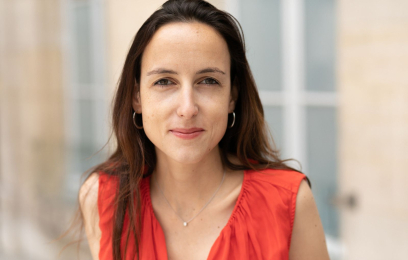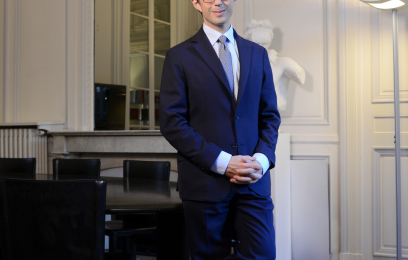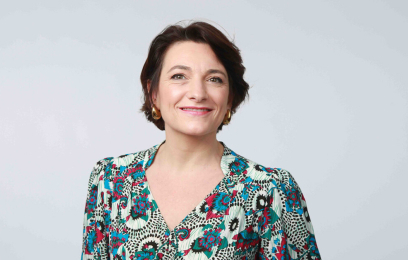The 2016 admissions report confirms Sciences Po's increasing attractiveness at all levels of study, with a total increase in applications of 7 percent compared to 2015. The number of applicants for each of the admissions procedures—entrance exam, international procedure and the Equal Opportunity programme—has risen. The stability of the selection rate and the diverse student body contribute to the outstanding academic experience Sciences Po offers. Total student numbers remain stable this year and include 59 percent female students.
Undergraduate admissions
Sciences Po’s appeal among high school students has never been stronger. A total of 10,145 students applied to the Undergraduate College this year, all procedures and dual degree programmes included —an increase of 10 percent in one year.
This year, the entrance examination attracted 5,528 candidates, up 4 percent from 5,304 in 2015. 2,853 candidates applied through the international procedure or to one of the international dual degree programmes—an increase of 17 percent in one year. The number of candidates applying through the Equal Opportunity programme remained stable: 956 high school students took part in the Sciences Po workshops and 774 completed their written applications (compared to 937 and 737 respectively in 2015).
There is also an increasing level of diversity among students: all procedures combined, admitted students come from 1,020 high schools around the world, up from 878 in 2015. In France, more students come from outside the Paris region than from within it and most admitted students are attending a regional campus in France.
Graduate admissions
This year, 6,293 candidates applied for a Master's programme, an increase of about 2 percent on 2015 (6,183 candidates).
Three-quarters of Master's students were admitted through the dual degree or international procedures. Only half of them were in 2009. This strong increase (up 117 percent) reflects the internationalisation of the student body at Sciences Po and the success of the 38 dual degrees.
The five one-year Master’s programmes, which were launched in 2015, are designed for young professionals and taught entirely in English at the Paris School of International Affairs, the School of Public Affairs and the School of Management and Innovation. Already in 2016, 258 candidates applied and 131 were admitted.
Sciences Po remains one of the most socially inclusive of selective institutions
1,611 students have been admitted through the Equal Opportunity programme since it began in 2001, positioning Sciences Po as a key player in social diversity among higher education institutions. In 2016, about 10 million euros of total financial aid disbursed by Sciences Po benefitted to 37 percent of students.
In addition to the Equal Opportunity programme, sliding scale tuition fees together with a proactive financial and social support policy help promote greater diversity within the university.

02.04.2025
JULIA CAGÉ, PROFESSOR AT SCIENCES PO, AWARDED THE PRESTIGIOUS YRJÖ JAHNSSON PRIZE 2025
2 april 2025, Paris – Julia Cagé, Professor of Economics in the Department of Economics at Sciences Po, has been named co-recipient of the 2025 Yrjö Jahnsson Prize.
This European prize, awarded every two years by the European Economic Association (EEA) and the Yrjö Jahnsson Foundation, recognises economists under the age of 45 for their outstanding contributions to economic research in Europe. She is the first French economist to receive this distinction in 12 years.
"I extend my warmest congratulations to Julia Cagé for this prize, which recognizes the excellence of her research. At Sciences Po, we are proud to see a scholar whose work sheds light on the major democratic challenges of our time, particularly issues related to media independence and political transparency, receive such recognition. This award once again highlights the vitality of our academic research and its ability to inform public debate," Luis Vassy, President of Sciences Po.
Julia Cagé shares the prize with economist David Yanagizawa-Drott (University of Zurich). The selection committee praised their joint work in political economy and media studies, particularly their historical analyses of France, the United States, and Africa. The jury emphasised “the crucial importance of media independence for a healthy democracy” and the relevance of their research on the risks of controlled media systems.
Julia Cagé joined Sciences Po in 2014 after earning her PhD in Economics from Harvard University. She is an Associate Professor in the Department of Economics and, since 2018, has served as co-director of the “Democracy Evaluation” research group at Sciences Po’s Laboratory for Interdisciplinary Evaluation of Public Policies (LIEPP). Her research focuses on media economics, political participation, and social inequalities. In 2023, she was also awarded the Best Young Economist Prize by Le Monde and the Cercle des économistes.
Her recent projects explore issues related to the circulation of information in the digital age, disinformation, and the financing of electoral campaigns. In 2021, she received a prestigious ERC Starting Grant for her PARTICIPATE project, and has since secured several major grants, including from Project Liberty.
This is the first time that an economist from Sciences Po’s Department of Economics has received this award. Sciences Po thus becomes the third French university to count a Yrjö Jahnsson Prize laureate among its faculty, alongside the Toulouse School of Economics and the Paris School of Economics.
Read more

